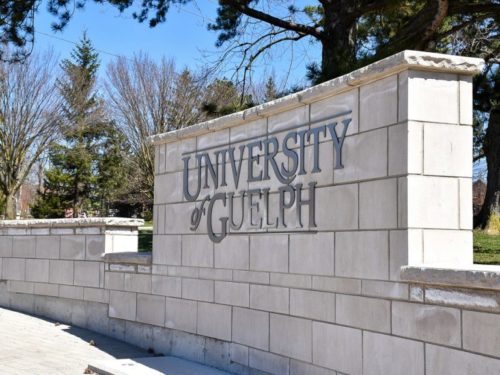 The University of Guelph has awarded nearly $700,000 to U of G researchers for 51 projects designed to support the battle against the COVID-19 pandemic and mitigate its impacts.
The University of Guelph has awarded nearly $700,000 to U of G researchers for 51 projects designed to support the battle against the COVID-19 pandemic and mitigate its impacts.
The projects, involving faculty, staff and students from all of the University’s colleges, are aimed at reducing the spread of the COVID-19-causing virus SARS-CoV-2, preventing or treating the disease, and navigating the effects of the pandemic on people and communities.
Each project will receive up to $10,000 from the Research Development and Catalyst Fund, with matching support from sources such as departments, colleges and private donors.
“I’m tremendously pleased with the response of U of G’s fantastic researchers to this funding program,” said Malcolm Campbell, vice-president (research). “In just six weeks, this program was conceived and delivered. Clearly, our researchers – and indeed the entire University community – are eager to lend our expertise and leadership to the vitally important pursuit of reining in this pandemic and thereby improving life.”
“We recognize the efforts of the many people who worked so hard to deliver this funding program in such a short time,” said Karina McInnis, associate vice-president (research services). “Office of Research staff and the adjudication committee, representing all colleges and the Diversity and Human Rights Office, pulled together to make sure this funding program could be delivered efficiently and effectively.”
Among the projects funded are:
- Development of vaccine platforms against the COVID-19 virus
These vaccines are based on live-attenuated Newcastle disease virus and human adenovirus-48. The project is led by Profs. Leonardo Susta, Byram Bridle and Sarah Wootton, Department of Pathobiology. - Development of SARS-CoV-2 papain-like protease (PLpro) inhibitors
This project will optimize, characterize and validate two FDA-approved drugs as potential inhibitors for SARS-CoV-2 PLpro and will rapidly develop these compounds as early-phase therapeutic molecules to treat COVID-19 patients: Prof. Wei Zhang, Department of Molecular and Cellular Biology. - Investigation of cold plasma technology for sanitization
Cold plasma, a partially ionized gas that is generated when an electric field is applied into a gas like the air, is a cost-effective promising approach to properly sanitizing and allow the reuse of PPE: Prof. Kevin Keener, School of Engineering. - Identification of gaps in current social policy responses to COVID-19 using a livelihoods framework and intersectional policy analysis
Profs. Leah Levac and Deborah Stienstra, Department of Political Science; Belinda Leach, Department of Sociology and Anthropology; Kate Parizeau, Department of Geography, Environment and Geomatics; Post-doctoral researcher Dr. Laura Pin; and Dr. Tobin LeBlanc Haley, Cape Breton University. - Investigation of consumer information processing and stockpiling under the COVID-19 pandemic
Studies will examine how consumers process COVID-19 related information and its impact on their shopping behaviour: Profs. Yuanfang Lin and Tirtha Dhar, Department of Marketing and Consumer Studies. - Development of antimicrobial non-woven filters for respirator masks
High filtration efficiency electrospun non-woven filters will be incorporated into a respirator mask, impregnated with inorganic antimicrobial (copper, silver and titanium dioxide) to actively destroy pathogenic viruses and bacteria as they come in contact with bioactive fibres: Profs. Loong-Tak Lim and Lawrence Goodridge, Department of Food Science; Alex zur Linden, Department of Clinical Studies; and John Phillips, Interdisciplinary Design Lab. - Investigation of COVID-19 and health inequality
This research will illuminate the social dynamics of transmission and vulnerability during the COVID-19 pandemic in Ontario. By focusing on government documents, media debates and directives of public health officials and politicians, it will examine the social and cultural effects of COVID-19 on women, Indigenous peoples, recent immigrants and economically disadvantaged populations: Profs. Tara Abraham and Catherine Carstairs, Department of History.
A complete list of projects can be found here.